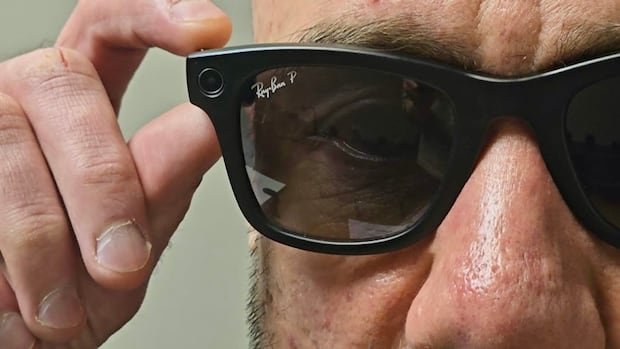Andrew Tutty, a resident of Kitchener, Ontario, used to associate driving with freedom before losing his eyesight and driving privileges. The loss of independence became evident once he could no longer drive. Everyday tasks like cooking also became challenging. However, Tutty discovered a way to regain some freedom through AI-powered glasses.
Although not initially created as accessibility aids, these glasses have gained popularity in the blind community for enhancing daily life independence. Despite their benefits, experts caution about privacy, security, and data collection concerns.
Tutty employs Meta’s AI smart glasses to assist him in various tasks, such as identifying objects and describing his environment through voice commands. The glasses connect to his smartphone and work alongside accessibility apps like Be My Eyes. Emilee Schevers, who is legally blind from Hamilton, Ontario, uses similar glasses for tasks like checking clothing colors and verifying traffic signals for added reassurance.
While these glasses provide significant independence at a reasonable cost, Peter Lewis, an associate professor at Ontario Tech University, warns about potential privacy implications. The devices capture and transmit data to large companies, raising privacy issues regarding data collection and potential misuse.
Despite the advantages of AI technology, Tutty emphasizes the importance of using traditional tools like canes for safety-critical information, as AI systems can be fallible. Lewis advocates for designing assistive technologies that prioritize user needs and respect privacy, aiming for seamless integration into daily life without compromising independence.
Looking ahead, Lewis envisions the next generation of assistive technology prioritizing user empowerment without sacrificing privacy. He emphasizes the need for technology that seamlessly integrates into daily life to foster independence effectively.


